 W
WIn criminology, corporate crime refers to crimes committed either by a corporation, or by individuals acting on behalf of a corporation or other business entity. For the worst corporate crimes, corporations may face judicial dissolution, sometimes called the "corporate death penalty", which is a legal procedure in which a corporation is forced to dissolve or cease to exist.
 W
WJudicial dissolution, sometimes called the corporate death penalty, is a legal procedure in which a corporation is forced to dissolve or cease to exist.
 W
WIn Japan, structural engineers designing structures exceeding a certain floor area or number of storeys must submit drawings and calculations to the authorities, demonstrating that the building is safe "Structural Calculation Forgery Problem" refers to a series of incidents, set off by the Ministry of Land, Infrastructure and Transport's November 17, 2005, announcement that structural engineer Hidetsugu Aneha of Aneha Architectural Design Office in Chiba Prefecture had falsified earthquake design calculations. A number of Japanese construction and real estate companies have had to declare bankruptcy due to their involvement in the affair, including Kimura Construction and Huser. Note that Aneha is frequently referred to as an architect, as Japan has a unique licensing system where structural engineers designing buildings are registered as first-class architects.
 W
WBanco Español de Crédito, S.A., “Spanish Credit Bank”) better known as Banesto, was a Spanish multinational financial services company. Prior to the Spanish Government's historical intervention in 1993, the very first in the history of banking, Banesto was the third-largest financial group in Spain, operating around 1,770 branches, as well as the fifth-largest company of the IBEX 35. The ambitious capital increase planned in 1993 by its Executive Chairman Mario Conde together with J.P. Morgan's vice-president Roberto Mendoza became the biggest restructuring plan in the history of Europe, involving asset sales and a rights issue of US$1.2 billion, after which Banesto was expected to become the largest financial firm in Europe. Although initially accepted by the Bank of Spain, it was later frustrated following intervention on the basis of financial transparency.
 W
WThe Bank of Credit and Commerce International (BCCI) was an international bank founded in 1972 by Agha Hasan Abedi, a Pakistani financier. The bank was registered in Luxembourg with head offices in Karachi and London. A decade after opening, BCCI had over 400 branches in 78 countries and assets in excess of US$20 billion, making it the seventh largest private bank in the world.
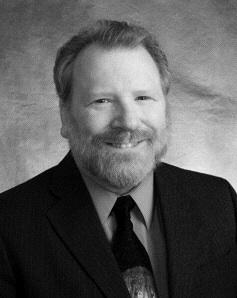 W
WWilliam Kurt Black is an American lawyer, academic, author, and a former bank regulator. Black's expertise is in white-collar crime, public finance, regulation, and other topics in law and economics. He developed the concept of "control fraud", in which a business or national executive uses the entity he or she controls as a "weapon" to commit fraud.
 W
WBribery is defined by Black's Law Dictionary as the offering, giving, receiving, or soliciting of any item of value to influence the actions of an official, or other person, in charge of a public or legal duty. With regard to governmental operations, essentially, bribery is "Corrupt solicitation, acceptance, or transfer of value in exchange for official action." Gifts of money or other items of value which are otherwise available to everyone on an equivalent basis, and not for dishonest purposes, is not bribery. Offering a discount or a refund to all purchasers is a legal rebate and is not bribery. For example, it is legal for an employee of a Public Utilities Commission involved in electric rate regulation to accept a rebate on electric service that reduces their cost for electricity, when the rebate is available to other residential electric customers. However, giving a discount specifically to that employee to influence them to look favorably on the electric utility's rate increase applications would be considered bribery.
 W
WChevron Corporation is an American multinational energy corporation. It was founded in 1984 and is the third largest oil company in America. One of the successor companies of Standard Oil, it is headquartered in San Ramon, California, and active in more than 180 countries. Chevron is engaged in every aspect of the oil and natural gas industries, including hydrocarbon exploration and production; refining, marketing and transport; chemicals manufacturing and sales; and power generation. Chevron is one of the world's largest companies; as of March 2020, it ranked fifteenth in the Fortune 500 with a yearly revenue of $146.5 billion and market valuation of $136 billion. In the 2020 Forbes Global 2000, Chevron was ranked as the 61st-largest public company in the world. It was also one of the Seven Sisters that dominated the global petroleum industry from the mid-1940s to the 1970s.
 W
WCompass Group plc is a British multinational contract foodservice company headquartered in Chertsey, England. It is the largest contract foodservice company in the world employing over 500,000 people. It serves meals in locations including offices and factories, schools, universities, hospitals, major sports and cultural venues, mining camps, correctional facilities and offshore oil platforms. Compass Group is listed on the London Stock Exchange and is a constituent of the FTSE 100 Index. It is also a Fortune Global 500 company.
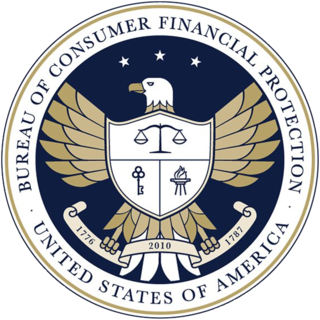 W
WThe Consumer Financial Protection Bureau (CFPB) is an agency of the United States government responsible for consumer protection in the financial sector. CFPB's jurisdiction includes banks, credit unions, securities firms, payday lenders, mortgage-servicing operations, foreclosure relief services, debt collectors, and other financial companies operating in the United States. Since its founding, the CFPB has "engaged the 21st century" by using technology tools to monitor how financial entities used social media and algorithms to target consumers.
 W
WCorporate Crime in the Pharmaceutical Industry is a 1984 book on corporate crime and the pharmaceutical industry by criminologist John Braithwaite.
 W
WThe Corporate Manslaughter and Corporate Homicide Act 2007 is an Act of the Parliament of the United Kingdom that seeks to broaden the law on corporate manslaughter in the United Kingdom. The Act created a new offence respectively named corporate manslaughter in England and Wales and Northern Ireland, and corporate homicide in Scotland.
 W
WThe Danske Bank money laundering scandal arose in 2017-2018, when it became known that around €200 billion of suspicious transactions had flowed from Estonian, Russian, Latvian and other sources through the Estonia-based bank branch of Denmark-based Danske Bank from 2007 to 2015. It has been described as possibly the largest money laundering scandal ever in Europe, and as possibly the largest in world history. It includes incoming funds from Estonia (23%), Russia (23%), Latvia (12%), Cyprus (9%), UK (4%) and others. Outgoing funds were distributed between Estonia (15%), Latvia (14%), China (7%), Switzerland (6%), Turkey (6%) and others (52%)
 W
WA defeat device is any motor vehicle hardware, software, or design that interferes with or disables emissions controls under real-world driving conditions, even if the vehicle passes formal emissions testing. The term appears in the US Clean Air Act and European Union regulations, to describe anything that prevents an emissions control system from working, and applies as well to power plants or other air pollution sources, as to automobiles.
 W
WThe Enron scandal was an accounting scandal involving Enron Corporation, an American energy company based in Houston, Texas. Upon being publicized in October 2001, the company declared bankruptcy and its accounting firm, Arthur Andersen – then one of the five largest audit and accountancy partnerships in the world – was effectively dissolved. In addition to being the largest bankruptcy reorganization in U.S. history at that time, Enron was cited as the biggest audit failure.
 W
WThe Federal Trade Commission (FTC) is an independent agency of the United States government whose principal mission is the enforcement of civil (non-criminal) U.S. antitrust law and the promotion of consumer protection. The FTC shares jurisdiction over federal civil antitrust enforcement in the United States with the Antitrust Division of the U.S. Department of Justice. It is headquartered in the Federal Trade Commission Building in Washington, DC.
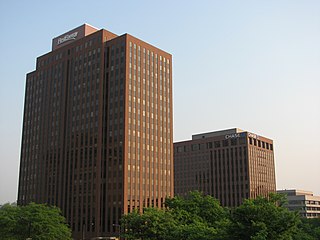 W
WFirstEnergy Corp is an electric utility headquartered in Akron, Ohio. Its subsidiaries and affiliates are involved in the distribution, transmission, and generation of electricity, as well as energy management and other energy-related services. Its ten electric utility operating companies comprise one of the United States' largest investor-owned utilities, based on serving 6 million customers within a 65,000-square-mile (170,000 km2) area of Ohio, Pennsylvania, West Virginia, Virginia, Maryland, New Jersey and New York. Its generation subsidiaries control more than 16,000 megawatts of capacity, and its distribution lines span over 194,000 miles. In 2018, FirstEnergy ranked 219 on the Fortune 500 list of the largest public corporations in the United States by revenue.
 W
WHIH Insurance was Australia's second-largest insurance company before it was placed into provisional liquidation on 15 March 2001. The demise of HIH is considered to be the largest corporate collapse in Australia's history, with liquidators estimating that HIH's losses totalled up to A$5.3 billion. Investigations into the cause of the collapse have led to conviction and imprisonment of a handful of members of HIH management on various charges relating to fraud.
 W
WIndustrial espionage, economic espionage, corporate spying or corporate espionage is a form of espionage conducted for commercial purposes instead of purely national security.
 W
WThe Madoff investment scandal was a major case of stock and securities fraud discovered in late 2008. In December of that year, Bernie Madoff, the former NASDAQ chairman and founder of the Wall Street firm Bernard L. Madoff Investment Securities LLC, admitted that the wealth management arm of his business was an elaborate multi-billion-dollar Ponzi scheme.
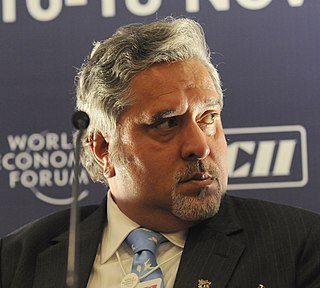 W
WVijay Vittal Mallya is an Indian businessman and former Member of Parliament. He is the subject of an extradition effort by the Indian Government to return him from the UK to face charges of financial crimes in India.
 W
WMCI, Inc. was a telecommunications company. For a time, it was the second largest long-distance telephone company in the United States, after AT&T. Worldcom grew largely by acquiring other telecommunications companies, including MCI Communications in 1998, and filed bankruptcy in 2002 after an accounting scandal, in which several executives, including CEO Bernard Ebbers, were convicted of a scheme to inflate the company's assets. In January 2006, the company, by then renamed MCI, was acquired by Verizon Communications and was later integrated into Verizon Business.
 W
WMeat Hope Inc. was a meat processing and wholesaling company headquartered in Tomakomai, Hokkaido, Japan. It went bankrupt in 2007 after several scandals of fraudulently labeling foodstuffs, including a ground beef fraud scandal.
 W
WMedia Vision was an American electronics manufacturer of primarily computer sound cards and CD-ROM kits, operating from 1990 to approximately 1995 in Fremont, California. Media Vision was widely known for its Pro AudioSpectrum PC sound cards—which it often bundled with CD-ROM drives—and its spectacular growth and demise.
 W
WMinamata disease, sometimes referred to as Chisso-Minamata disease, is a neurological disease caused by severe mercury poisoning. Signs and symptoms include ataxia, numbness in the hands and feet, general muscle weakness, loss of peripheral vision, and damage to hearing and speech. In extreme cases, insanity, paralysis, coma, and death follow within weeks of the onset of symptoms. A congenital form of the disease can also affect fetuses in the womb.
 W
WA New England Compounding Center meningitis outbreak that began in September 2012 sickened 798 individuals and resulted in the deaths of more than 100 people. In September 2012, the Centers for Disease Control and Prevention, in collaboration with state and local health departments and the Food and Drug Administration (FDA), began investigating a multistate outbreak of fungal meningitis and other infections among patients who had received contaminated steroid injections from the New England Compounding Center (NECC) in Framingham, Massachusetts. The NECC was classified as a compounding pharmacy. The traditional role of compounding pharmacies is to make drugs prescribed by doctors for specific patients with needs that can't be met by commercially available drugs.
 W
WPrivate sector participation in Nazi crimes was extensive and included widespread use of forced labor in Nazi Germany and German-occupied Europe, confiscation of property from Jews and other victims by banks and insurance companies, and the transportation of people to Nazi concentration camps and extermination camps by rail. After the war, companies sought to downplay their participation in crimes and claimed that they were also victims of Nazi totalitarianism. However, the role of the private sector in Nazi Germany has been described as an example of state-corporate crime.
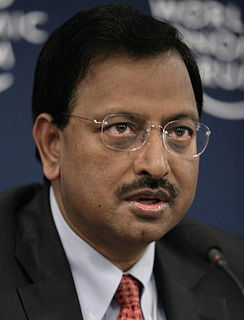 W
WByrraju Ramalinga Raju is an Indian businessman. He is the founder of Satyam Computer Services and served as its chairman and CEO from 1987 until 2009. Raju stepped down following his admission to embezzlement from the company to the tune of ₹7136 crores, including ₹5040 crores of non-existent cash and bank balances. In 2015, he was convicted of corporate fraud, which led to the collapse of Satyam Computers.
 W
WSK Foods L.P. was a California-based agribusiness company, with two packing and processing plants in Williams, California and Lemoore, California, respectively. It was a major tomato processor. SK Foods, Ingomar Packing Co. and Los Gatos Tomato products formed the California Tomato Export Group, (CTEG), which collectively produced over half of the U.S. supply of tomato products at the time of the group's formation in 2005. The company's Williams plant has employed hundreds of people each summer to can and process tomatoes during harvest season.
 W
WA scandal erupted in 2005 regarding Sony BMG's implementation of copy protection measures on about 22 million CDs. When inserted into a computer, the CDs installed one of two pieces of software that provided a form of digital rights management (DRM) by modifying the operating system to interfere with CD copying. Neither program could easily be uninstalled, and they created vulnerabilities that were exploited by unrelated malware. One of the programs would install and "phone home" with reports on the user's private listening habits - even if the user refused its end-user license agreement (EULA), while the other was not mentioned in the EULA at all. Both programs contained code from several pieces of copylefted free software in an apparent infringement of copyright, and configured the operating system to hide the software's existence, leading to both programs being classified as rootkits.
 W
WState-corporate crime is a concept in criminology for crimes that result from the relationship between the policies of the state and the policies and practices of commercial corporations. The term was coined by Kramer and Michalowski (1990), and redefined by Aulette and Michalowski (1993). These definitions were intended to include all "socially injurious acts" and not merely those that are defined by the local criminal jurisdiction as crime. This is not universally accepted as a valid definition so a less contentious version has been adopted here. As an academic classification, it is distinguished from:corporate crime, which studies deviance within the context of a corporation and by a corporation, or individuals representing the corporation; political crime, which is crime directed at the state; and state crime or "state-organised crime", which studies crimes committed by government organisations.
 W
WTip and Trade is a 2011 true crime book by Canadian author Mark Coakley, that depicts an insider trading conspiracy involving Wall Street lawyer Gil Cornblum who had worked at Sullivan & Cromwell and was working at Dorsey & Whitney, and a former lawyer, Stan Grmovsek, who were found to have gained over $10 million in illegal profits over a 14-year span. The crime was detected in 2008. Cornblum committed suicide by jumping from a bridge as he was under investigation and shortly before he was to be arrested but before criminal charges were laid against him, one day before his alleged co-conspirator Grmovsek pled guilty. Grmovsek pleaded guilty and was sentenced to 39 months in prison; this was the longest term ever imposed for insider trading in Canada.
 W
WTitan Corporation was a United States-based company with its headquarters located in San Diego, California. It was acquired by L-3 Communications on June 3, 2005 and operated as the "Titan Group" of L-3 Communications. In early 2007, divisions using the Titan Group name were internally directed to discontinue use of the "Titan" moniker and were given new names.
 W
WThe U.S. Securities and Exchange Commission (SEC) is a large independent agency of the United States federal government, created in the aftermath of the Wall Street Crash of 1929. The primary purpose of the SEC is to enforce the law against market manipulation.
 W
WThe Wells Fargo account fraud scandal is a controversy brought about by the creation of millions of fraudulent savings and checking accounts on behalf of Wells Fargo clients without their consent. News of the fraud became widely known in late 2016 after various regulatory bodies, including the Consumer Financial Protection Bureau (CFPB), fined the company a combined US$185 million as a result of the illegal activity. The company faces additional civil and criminal suits reaching an estimated $2.7 billion by the end of 2018. The creation of these fake accounts continues to have legal and financial ramifications for Wells Fargo and former bank executives as of early 2021.
 W
WThe term "white-collar crime" refers to financially motivated, nonviolent crime committed by individuals, businesses and government professionals. It was first defined by the sociologist Edwin Sutherland in 1939 as "a crime committed by a person of respectability and high social status in the course of their occupation". Typical white-collar crimes could include wage theft, fraud, bribery, Ponzi schemes, insider trading, labor racketeering, embezzlement, cybercrime, copyright infringement, money laundering, identity theft, and forgery. White-collar crime overlaps with corporate crime.
 W
WThe Wirecard scandal is a series of accounting scandals that resulted in the insolvency of Wirecard, a German payment processor and financial services provider that was part of the DAX index. Wirecard AG is a payment processor headquartered in Munich, Germany. The company offers its customers electronic payment transaction services and risk management, as well as the issuing and processing of physical cards. The subsidiary Wirecard Bank AG holds a banking licence and holds contracts with multiple international financial services companies.